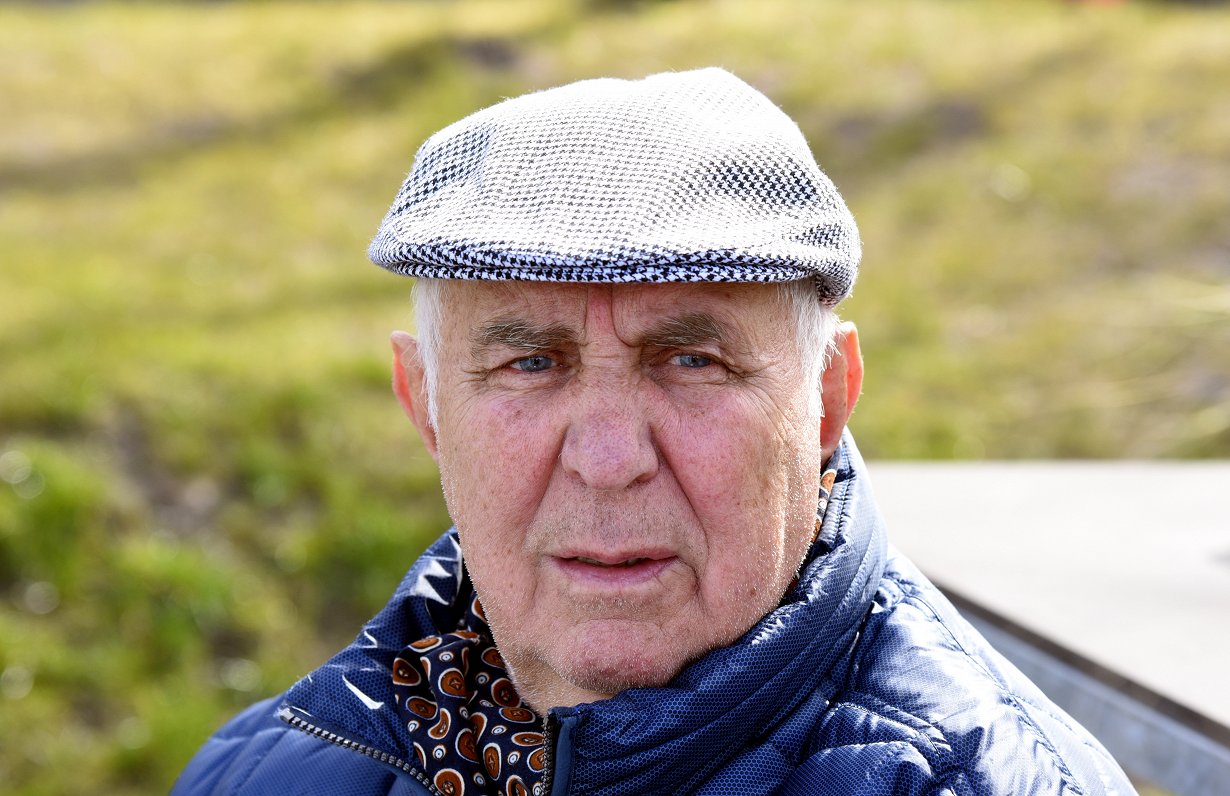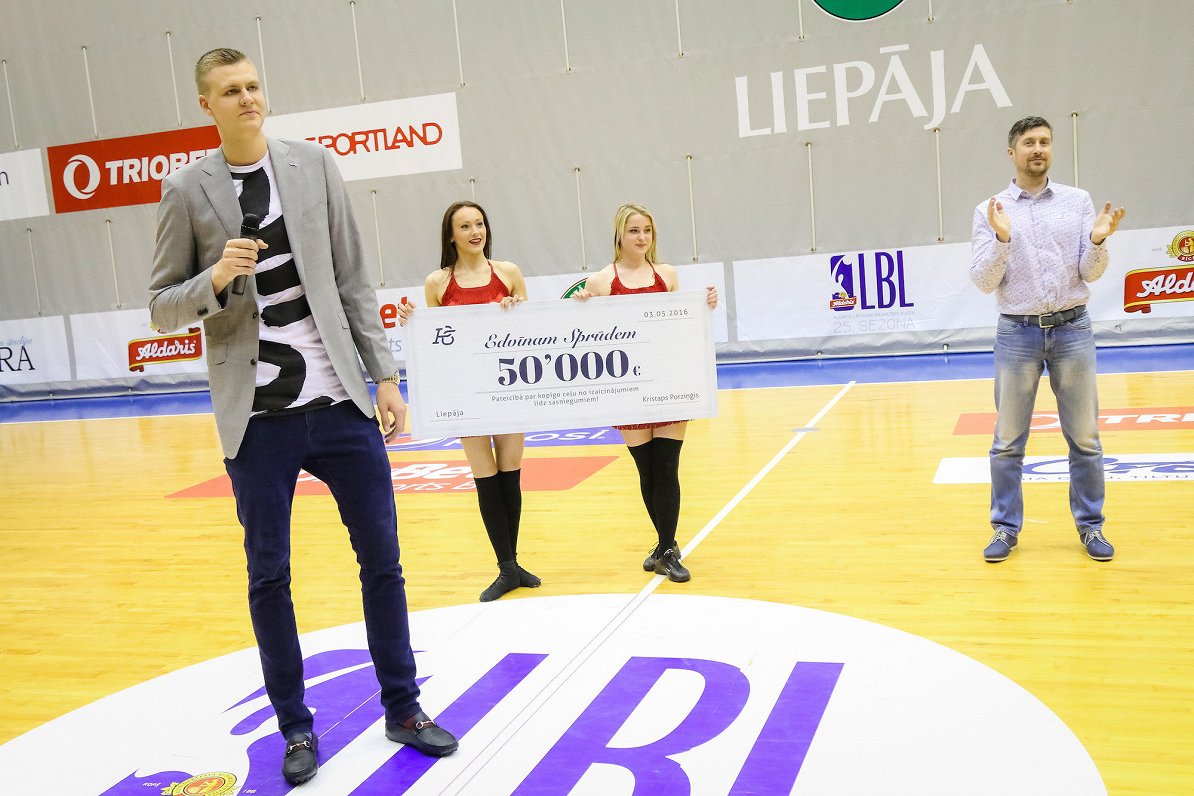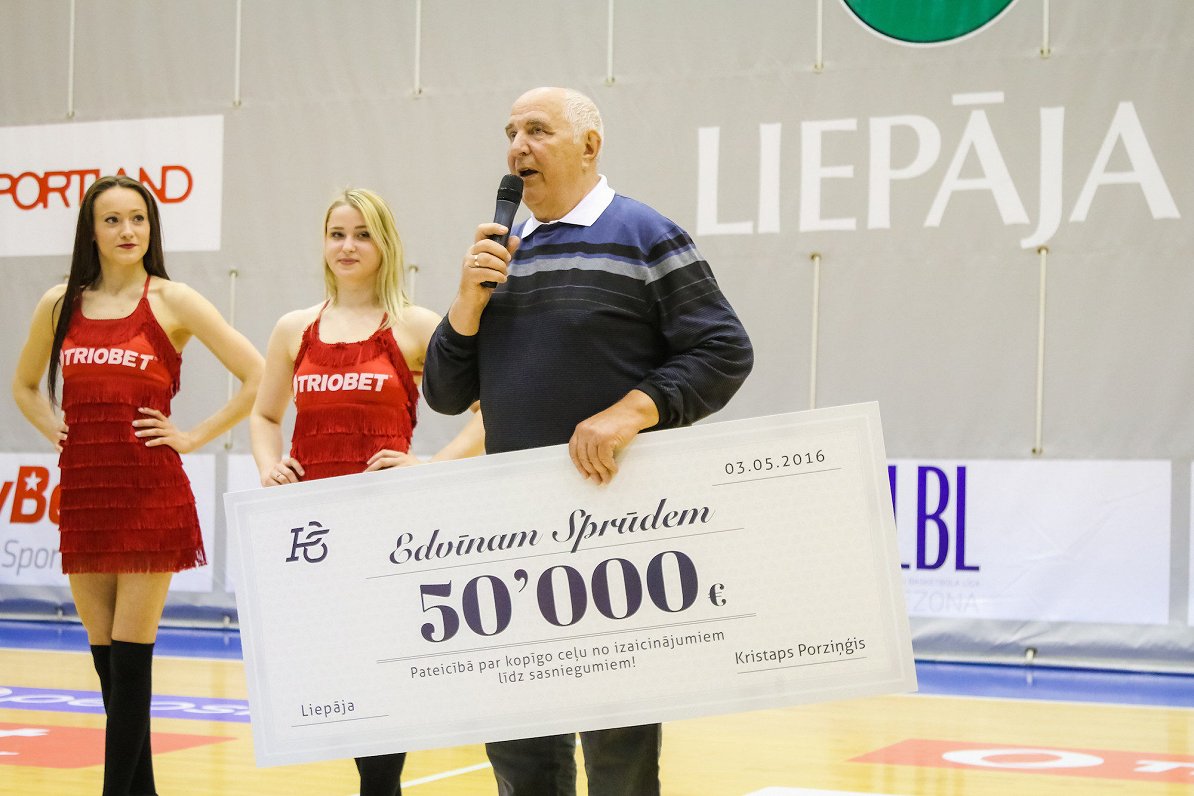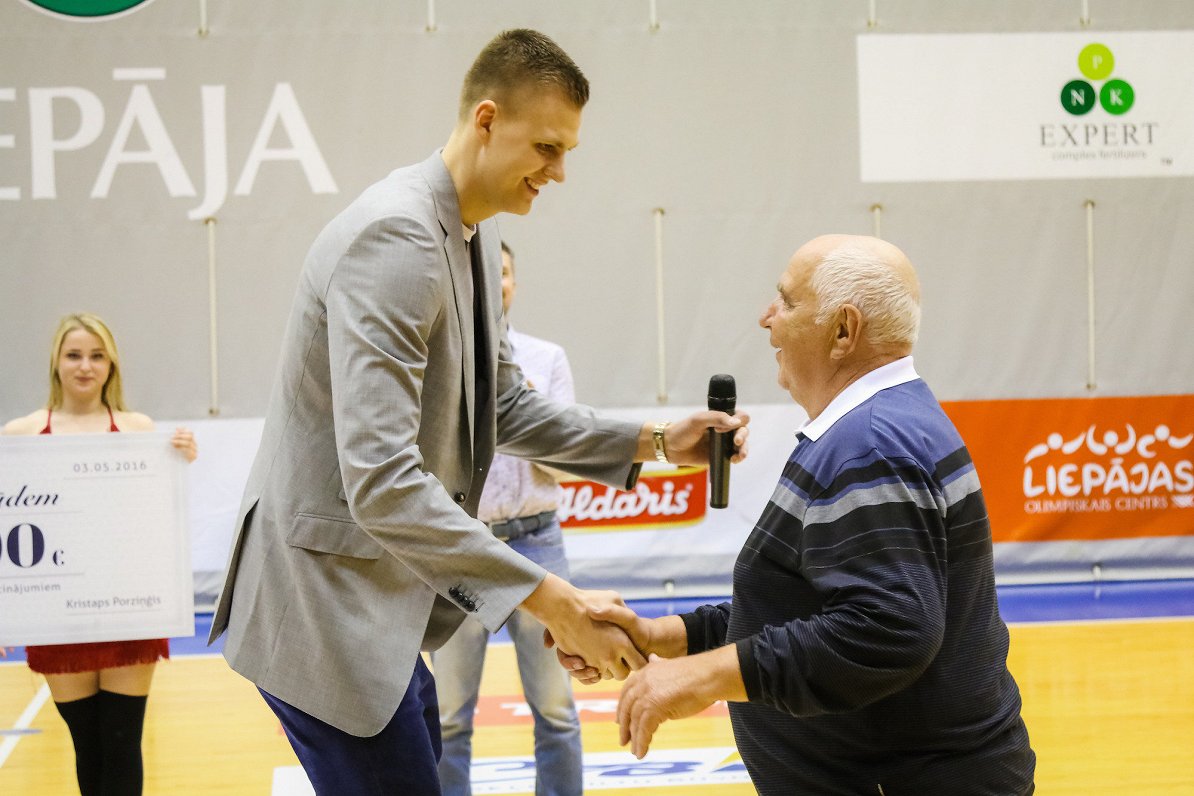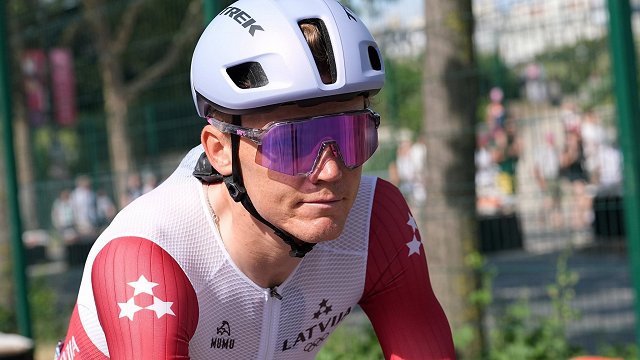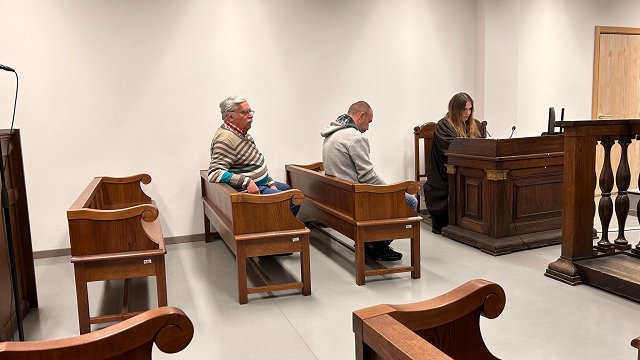Liepāja
Liepāja is Kristaps Porziņģis' native city, the third largest in Latvia. It lies in the western reaches of the country at the Kurzeme region, which incidentally is the region Gundars Vētra, the first Latvian to play in the NBA, comes from.
In a gesture of goodwill, Porziņģis has donated two basketball courts to his native town, which has no scruples in advertising itself as the birthplace of the promising NBA rookie who was picked fourth overall in the 2015 draft and has most recently helped team Latvia reach fifth place in the Eurobasket tournament, the best result in decades.
— You did not coach girls exclusively. Boys from the final groups you took in make you proud too, don't they?
— I've been out of coaching from seven years now, what with my health and old age. There were many able and talented boys as well. Before Porziņģis there was Uvis Helmanis who played in the national team, or Roberts Krastiņš, who's now playing in Liepāja.
— Were you able to divine a future basketball star in the little boy who first came to practice?
— Do not talk nonsense! How could I make out something of a six-year-old? Of course not. There was nothing unique about him at the start.
His mother took him in, a slim light-haired boy, well, he was somewhat tall. At first he wasn't too good but after a half year I started picking up on that he had a golden hand. After a while he was able to make three-pointers at the school yard with apparent ease. But I did have one problem with him.
— What was that?
— I coached practically no children born in 1995. The last group of kids I had were a year older, and I made Kristaps play with them. The challenge did him good, I suppose. At first it wasn't easy for him, but, in time, he began outplaying children older than him.
But, even when he was ten or twelve, I could not have known he would become a player of such caliber. Even when he started playing for different national teams, including junior and youth teams. He was a leader everywhere and distinguished himself, but to think of a career in the NBA...
— But sooner or later it rose upon you that he's a basketball star.
— When he went to Spain, it was already evident that he's growing to become a diamond player.
— His family played the main role in making him a player. They all played basketball, right?
— It's true, his family is wonderful. Both of his brothers played Basketball in Liepāja, as did his mother.
By the way, I trained his mother Ingrīda Porziņģe. She played with the junior national team and at my club, called Lauma.
His mother later worked at my basketball club and that's why she was often able to accompany Kristaps to tournaments.
— When was the first time you met Kristaps?
— In 2000. I was his coach for about eight years. These eight years I kept my basketball team afloat for as long as I could, but it was finally merged with the Liepāja Sports School. That's why Kristaps was coached by Egita Lāce for some time as well.
— Did they try to lure him to Rīga?
— Of course, there were a number of offers. But Kristaps was a patriot in that sense. He did not try to get anywhere on his own accord, and his family wouldn't have let him.
— What were the locations Kristaps practiced in?
— My basketball team had several courts, including the Grobiņa high school and the Liepāja first gymnasium, as well as the Sailors' Club court. In his childhood he could be found in these places. They practiced five times a week and had games on Saturdays and Sundays. While in summer they always had basketball camps. That's the way his school years went by.
— It seems Liepāja has given us not only Anastasija Sevastova, one of the best tennis players in the world, but already two NBA players, including Gundars Vētra?
— To become a professional athlete, you have everything you need in Liepāja. It was all here in the 90s and 2000s and there is all the more everything you need now when the town pays more attention to sports.
— In an interview Kristaps said he doesn't remember much from his first practice session in the Liepāja Gymnasium. But he hasn't forgotten the tears and the way his coach yelled.
— Well, what's there to say. That was my style, that was they way I did it. I did a little yelling, from time to time.
I can only say no one left me. Now when I see my pupils on the street I only hear words of gratitude from them.
— But do you remember what was Kristaps like in his first practice session?
— He was shy and timid.
After he first came to practice, his mother told me Kristaps was very scared.
That was because he did not know anything and did not understand what are the rules in basketball, how you should handle the ball, where to go and what to do.
— Not long ago the Eurobasket championship took place in Istanbul. The Latvian team got fifth place, and in many ways it's thanks to Porziņģis.
— Kristaps' game was an inspiration to me, I won't hide it. I was glad for the whole two weeks when I watched him play.
— Do you two keep in touch?
— We call one another from time to time. He's very responsive. I haven't lost touch with his family too. Our homes are nearby, divided only by a basketball court. So sometimes Kristaps and his brother Jānis drop by. I have several gifts at home from him. I have a baseball cap from his New York team at home.
— Is that the same court that Kristaps gave to the city?
— That's right. He made two basketball courts here.
— They say Kristaps has sparked a basketball revolution in Liepāja. Is that so?
— It's a bit over the top but it's basically correct. He's a great promoter of this game and someone who infects everyone around with his ideas, and his brothers as just like that.
Porziņģis is more or less a cult figure in Liepāja. He's a great example for the boys.
— A basketball mania is raging across the country.
— This should lead to us having a new Porziņģis in five to six years.
When I worked as a coach, I went to Saldus and Kuldīga [towns in the Kurzeme region near Liepāja]. There weren't enough kids to play. Now they only lure players to Liepāja for the adult team.
— Don't you think money will spoil Kristaps?
— I don't think so. He's not like that. He hasn't become arrogant or conceited. Basketball is his number one priority and everything else comes afterwards.
— I can only imagine what you felt when he was picked in the 2015 NBA draft.
— It was a very stressful moment for me. My lips were trembling. The NBA official said his name, then he's hugging his parents and his brothers and then he marches onto the scene. It can't be described!
I remember him being tiny and small, but now I can say with certainty that Kristaps has a great and bright future ahead of him. He will become a leader.
But I still see where he could improve. First of all it's defensive play. Very impressive players hit the court at the NBA and sometimes Kristaps lacks in weight. But it can be improved, and he's used to surmounting difficulty.
In the early years on the court he sometimes lacked anger and audacity, but the years went by and he improved.
He has a clear head and he'll manage.
— They say 'he has a head on his shoulders' [an idiom connoting intelligence] about people like him.
— That's right. He'll manage pressure from the press and his fans, and he won't succumb to fame. I am sure of that. I can't even imagine what might unsettle him. I am proud of having helped him grow as a player at some time.
